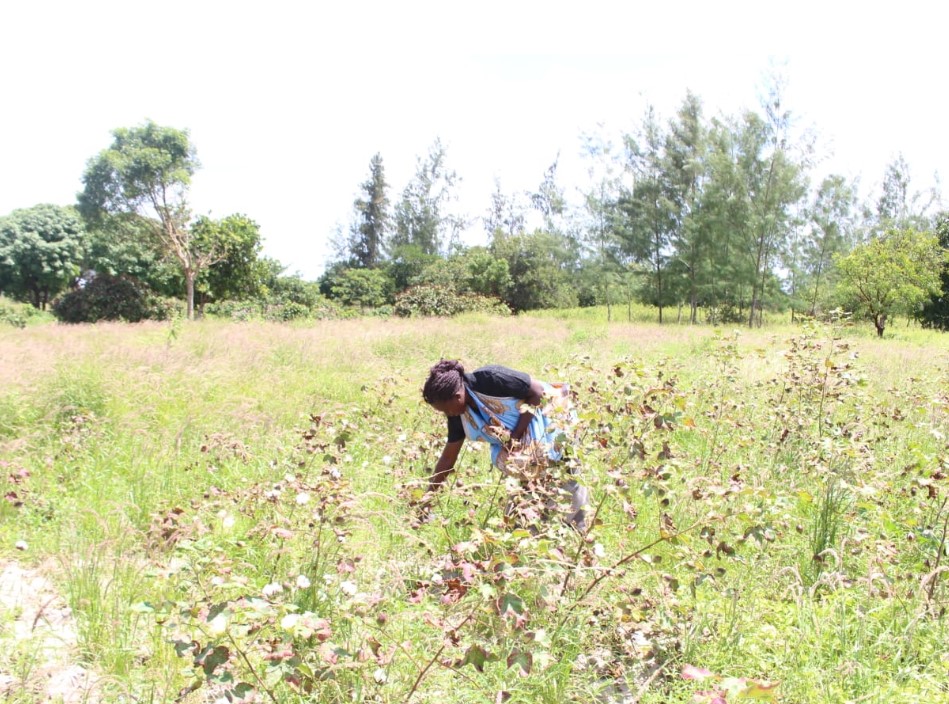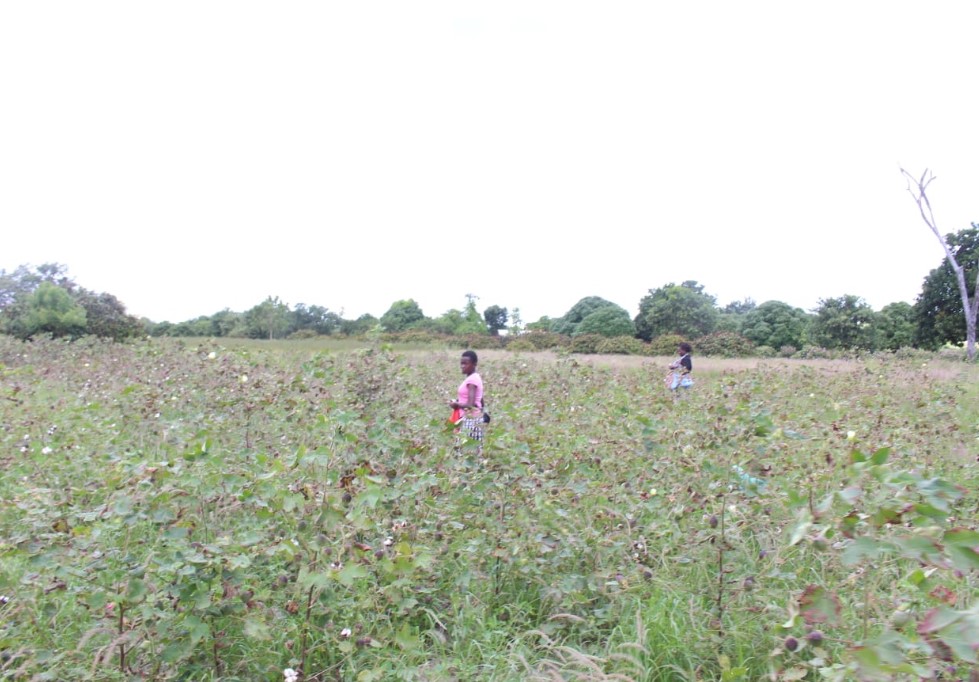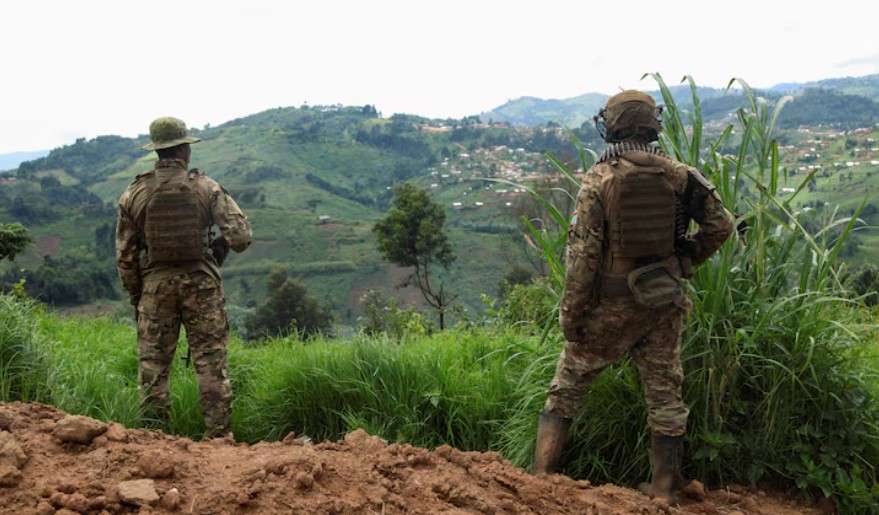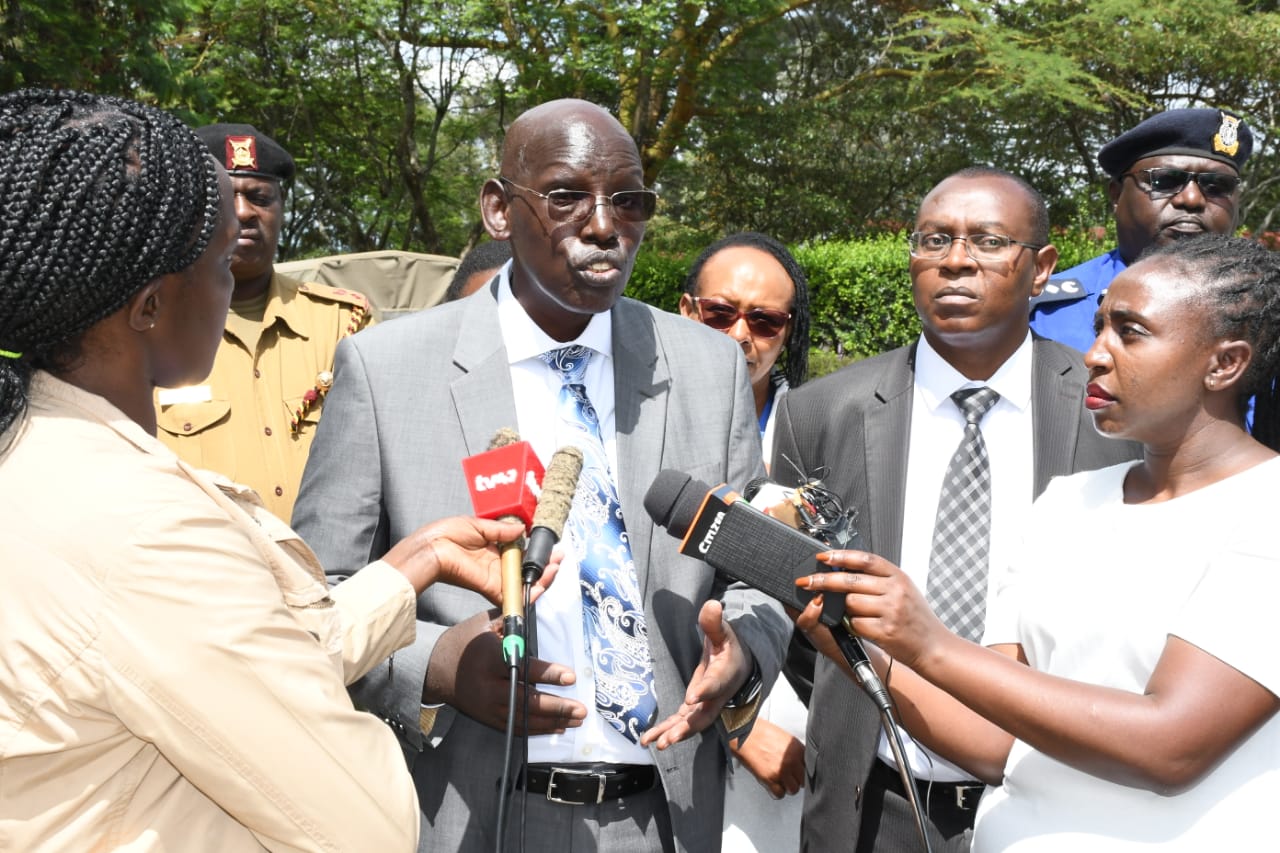Revival of cotton cultivation in Lamu: Hope on horizon for Mpeketoni farmers
Farmers, previously disillusioned, are now optimistic about the future of the sector, with local government initiatives paving the way for a potential cotton factory.
After decades of decline, Lamu County is experiencing a resurgence in cotton farming, fuelled by rising selling prices, quality seed distribution, and support from stakeholders like Thika Cloth Mills (TCM).
More To Read
- Survivor of Lamu's deadly 2014 Al-Shabaab attack vows to preach peace
- Why fishermen in Lamu are quitting the trade despite catching tonnes of fish
- Bill seeks to create fund to secure 20 per cent minimum returns for Kenyan farmers
- Reopening of Mangai Dispensary in terror-prone Boni Forest helping to save lives
Farmers, previously disillusioned, are now optimistic about the future of the sector, with local government initiatives paving the way for a potential cotton factory to further enhance production and sales.
About 50 years ago, the Mpeketoni Scheme and the neighbouring areas of Witu, both in Lamu West, were famous for producing high-quality cotton in the country, as it produced and distributed more than 5000 tonnes of cotton yearly.
Established between 1972 and 1996, the Mpeketoni scheme fuelled cotton farming to flourish as it was preferred by many Lamu farmers to bring them income, despite the existing challenges of lack of market, low prices, and also bad seeds faced by the sector.
Between 1998 and 2000, cotton farmers in Mpeketoni, lost confidence in cotton farming due to poor pricing of the produce, which led to its official collapse in 2000.
At the time, the produce was retailed at Sh14 per kilogramme, leading to mass quiting and opting for other produce like cashews, beans, bixa farming for quick cash.
With the collapse, the farms were infested by insects which swept the cotton that was being grown by the few, trying to revive the cultivation ten years later. The farmer also cited adequate market challenges wondering where they would sell their produce, with the distribution of poor cotton seeds among them.
 Nancy Wangoi harvesting cotton at her farm in Salama Village in Mpeketoni, Lamu West (Photo: Farhiya Hussein)
Nancy Wangoi harvesting cotton at her farm in Salama Village in Mpeketoni, Lamu West (Photo: Farhiya Hussein)
Scheme revival
During an interview with The Eastleigh Voice, the Lamu County Union of Cotton Farmers Chair, Joseph Mwangi Migwi, said the glimmer of hope that cotton farming would be revived in Mpeketoni came in 2016 as announced by the then Agriculture Minister Willy Bett.
“We are very grateful to the former Minister of Agriculture, Willy Bett. He was the one who encouraged cotton farmers in Mpeketoni to continue growing the crop. Agriculture had collapsed. We recognise his efforts in 2017, where he imported high-quality hybrid cotton seeds from India, which enabled us farmers to start getting good yields,” Migwi said.
So far Lamu has made great strides in cotton farming, with more than 10,000 farmers located in various areas including Mpeketoni, Baharini, Mkunumbi, Hongwe, Witu, and Hindi-Magogoni.
Efforts are also in place to develop cotton farming in the island areas of Lamu such as Faza and Pate in Lamu East Sub-County.
Migwi says among the factors that give Lamu farmers the hope to continue venturing into cotton farming is the rise in prices, where currently one kilogramme of the crop is being sold for between Sh30 and Sh37.
Another step that brings hope to farmers is the existence of a ready market, with the increase of stakeholders in the cotton sector, including TCM that has in recent times been witnessed intervening and helping the farmers in getting a ready market for their produce.
Cotton factory
According to Migwi, TCM has currently invested more than Sh36 million in buying and distributing modern cotton seeds to the farmers for free as part of the efforts to boost their morale in taking up cotton farming.
“TCM has been buying quality cotton seeds and distributing them to our local farmers. They have also given us an open and ready market, where they buy the cotton we produce. This is something that encourages many farmers to focus on cotton farming in recent years," said Mr Migwi.
Susan Kariuki, one of the cotton farmers in Baharini in Mpeketoni Division, also lauded the efforts made by the Lamu County government in reviving cotton farming in the area in recent years.
According to Kariuki, the Lamu devolved government under Governor Issa Timamy has always been distributing modern cotton seeds to farmers.
 Cotton farm in Salama, Lamu West (Photo: Farhiya Hussein)
Cotton farm in Salama, Lamu West (Photo: Farhiya Hussein)
“We had despaired that cotton farming would recover. We’re now hopeful and more than confident that cotton farming is on the road to recovery bearing in mind that various stakeholders such as the county government of Lamu have come onboard and are committed to supporting the cotton industry. We are confident that cotton farming lost glory will be restored,” said Kariuki.
Nancy Wangoi, a cotton farmer in Salama village, pleaded with the county government to consider building a cotton factory in Lamu to make it easy for them to sell the crop at good prices under a ready market availability.
“I know once a cotton factory is established in Lamu, many farmers will get interested in growing cotton. The market will also be closer to us,” said Wangoi.
On his part, Lamu County Agriculture Executive, James Gichu said the devolved government is in the process of developing ambitious strategies to promote cotton farming.
“Plans are underway to build a cotton factory in this area. We’re also making strides to buy and distribute modern and quality cotton seeds for our farmers. Our goal is to restore Lamu’s lost glory in cotton farming,” said Gichu.





















